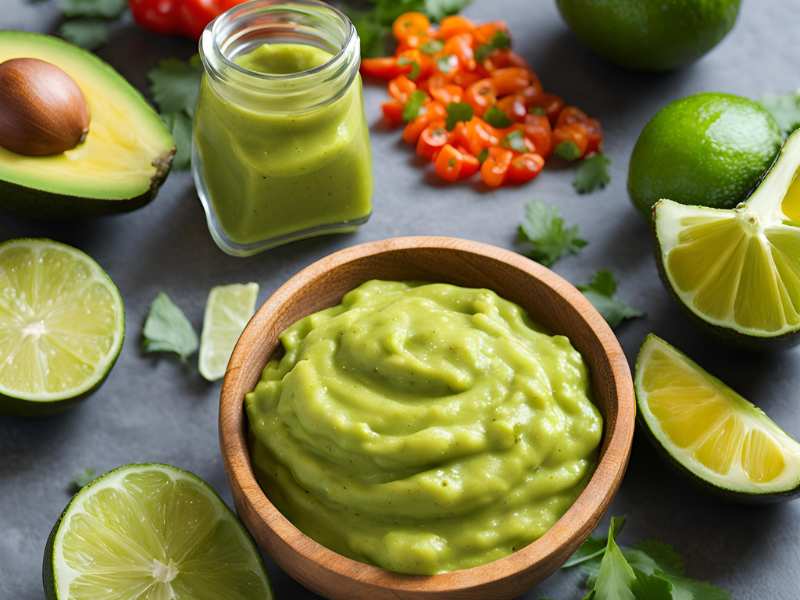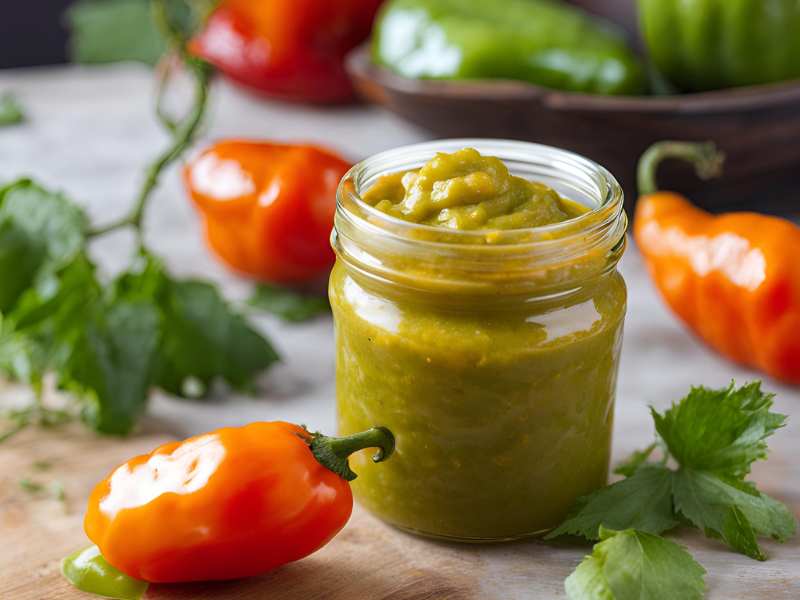If you’re someone who loves a spicy kick in your meals, then this guaco habanero sauce recipe might be just what you need. With the heat of habanero peppers and the earthy taste of guaco leaves, this sauce is bold, unique, and surprisingly easy to make. It’s a game-changer for anyone looking to add some punch to everyday dishes, from tacos to rice bowls, and it even works as a marinade for grilling.
So, What Exactly is Guaco?
Guaco (Mikania glomerata or Mikania guaco) is a plant known in Central and South America, often used in teas and natural remedies. With a slightly sweet, earthy flavor, it pairs beautifully with the spicy habanero pepper. Together, these ingredients make a sauce that’s rich and balanced, ideal for any heat lover looking to add more depth to their food.
Why You’ll Love This Guaco Habanero Sauce
- Intense Flavor and Heat: Habaneros bring serious heat, while guaco leaves add a warm, earthy touch that balances everything out.
- Versatile and Customizable: Perfect as a dip, marinade, or a drizzle for your favorite foods.
- Quick to Make: This recipe takes just a few minutes of prep and about 10–12 minutes of simmering to blend the flavors perfectly.
What You’ll Need to Make Guaco Habanero Sauce Recipe
For about one cup of sauce (feel free to double up if you’re a spice fanatic.

- 3–4 habanero peppers, with seeds removed if you prefer less heat
- 1/4 cup guaco leaves (fresh or dried work just fine)
- 1/2 cup white vinegar
- 2 cloves garlic, peeled and smashed
- 1/2 medium onion, chopped up
- 1 tablespoon lime juice (about half a lime’s worth)
- 1 teaspoon honey (optional, but it adds a nice sweetness)
- Salt to taste
- 1/4 cup water (add a little more if you want a thinner sauce)
How to Make Guaco Habanero Sauce Recipe
Step 1: Prepare the Habaneros
If you’re sensitive to spice, definitely wear gloves while handling the habaneros! Cut each pepper in half, and take out the seeds if you want a milder sauce. (Leave them in if you’re ready for a full-on spicy experience.)
Step 2: Cook the Ingredients
Combine the habaneros, guaco leaves, vinegar, garlic, and onion in a small saucepan. Pour in enough water to cover everything, and bring it to a simmer over medium heat. Let it cook for around 10–12 minutes until the onions soften and the guaco leaves become fragrant.
Step 3: Blend It Up
Transfer everything to a blender, then add in the lime juice, honey (if using), and a pinch of salt. Blend until smooth. If you prefer a thinner sauce, add a bit more water until it’s just right for you.
Step 4: Taste and Adjust
Give the sauce a taste! Add a touch more salt or honey if it feels like it needs it. If the spice level is higher than you expected, a little extra vinegar can tone it down a notch.
Step 5: Bottle and Enjoy
Pour your sauce into a sterilized jar or bottle and store it in the fridge. It’ll stay fresh for up to two weeks—just give it a shake before you use it.
How to Use Your Guaco Habanero Sauce
- On Tacos: Drizzle it over your favorite tacos for an extra spicy, tangy kick.
- With Grilled Meats: Brush it on grilled chicken, pork, or steak as a finishing touch.
- In Rice Bowls: Stir a spoonful into rice bowls with beans, veggies, and avocado for a vibrant flavor boost.
- In Dips: Add a little to sour cream, guacamole, or salsa to spice things up.
Tips for the Perfect Guaco Habanero Sauce
- Control the Heat: Swap one or two habaneros for a milder pepper, like jalapeño, if you’re looking for a gentler spice level.
- Fresh Herb Options: Adding a handful of fresh cilantro or parsley to the blender can bring out even more depth.
- Experiment with Sweetness: Not a fan of honey? Try maple syrup or even a dash of brown sugar for a different twist.
Health Benefits
Guaco leaves are known for their potential anti-inflammatory benefits, and habanero peppers are high in capsaicin, which may boost metabolism and release those feel-good endorphins. So, beyond its fantastic flavor, this sauce might just offer a few extra health perks!
FAQ
Yes! Removing the seeds from the habaneros or substituting with milder peppers can dial down the heat.
Stored in the fridge, this sauce should last up to two weeks in a sealed container.
No problem. Dried leaves will work, though you may need to simmer them a bit longer to fully release their flavor.
This guaco habanero sauce recipe is a surefire way to bring intense flavor and heat to your meals. It’s a perfect blend of fiery habanero, earthy guaco, and a hint of tangy lime, making it a must-try for anyone who loves bold flavors. Once you make this sauce, it might just become your go-to condiment for all your favorite dishes. Give it a shot—you won’t regret it!

I am a passionate recipe developer and food enthusiast specializing in heart-warming traditional dishes and simple, everyday meals. My goal is to inspire you to find joy and confidence in the kitchen through my easy-to-follow recipes.
